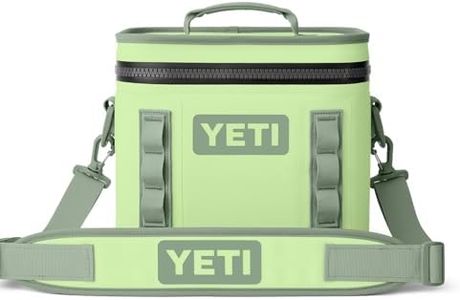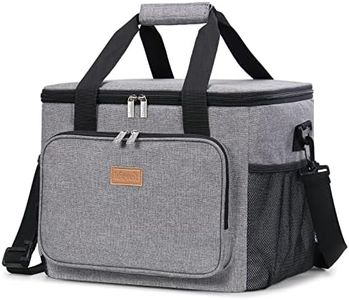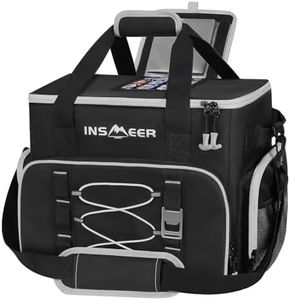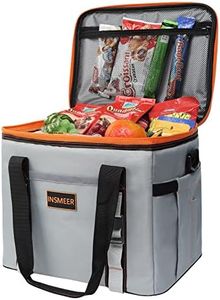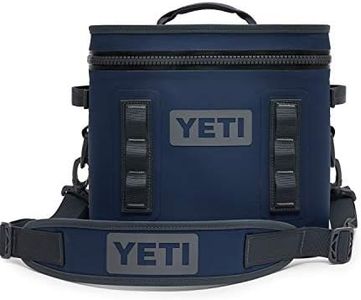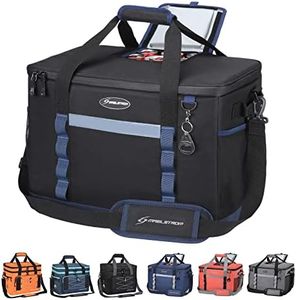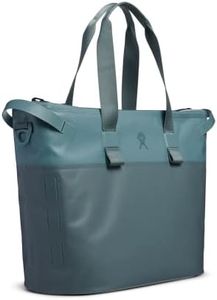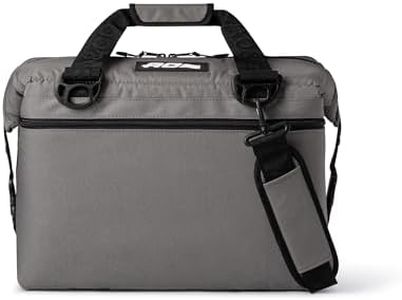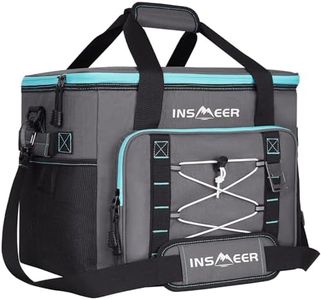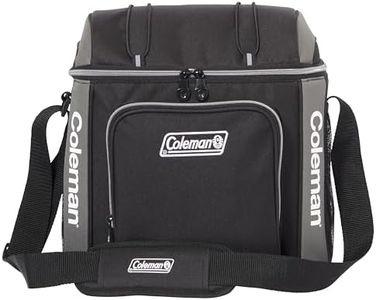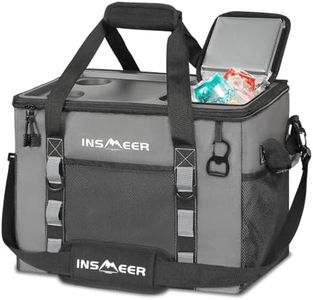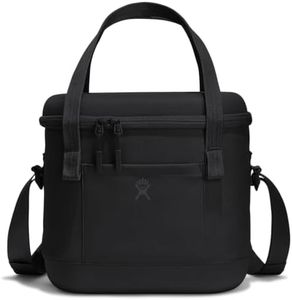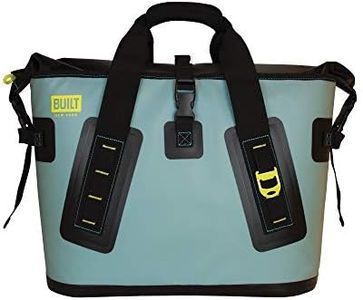We Use CookiesWe use cookies to enhance the security, performance,
functionality and for analytical and promotional activities. By continuing to browse this site you
are agreeing to our privacy policy
10 Best Soft Coolers
From leading brands and best sellers available on the web.By clicking on a link to a third party's website, log data is shared with that third party.
Buying Guide for the Best Soft Coolers
When choosing a soft cooler, it's helpful to think about how and where you'll be using it most. Soft coolers are a convenient option for keeping food and drinks cold on outings like picnics, beach trips, or short camping excursions. They’re lighter and easier to carry than hard coolers, but still offer effective insulation for several hours. To find the best match for your needs, consider size, insulation ability, portability features, and durability. Each of these factors will influence how comfortable and satisfied you are with your cooler, whether you’re packing snacks for a solo hike or drinks for a group barbecue.CapacityCapacity measures how much a soft cooler can hold, typically in either quarts or the number of cans it fits. This is important because too small a cooler may not fit all your food and drinks, while one that's too large can be awkward to carry and may not keep items cold as efficiently if only partially filled. Small soft coolers tend to hold about 6–12 cans and are perfect for personal use or couples. Medium sizes fit around 18–30 cans, ideal for a family picnic or small group. Large soft coolers can handle upwards of 36 cans and are well-suited for bigger gatherings. Think about how many people you’ll be packing for most of the time and what kind of items (bottles, containers, snacks) you’ll include—they’re your best guide for picking the right size.
Insulation PerformanceInsulation performance indicates how long the cooler will keep ice or cold packs from melting and your contents chilled. This is crucial for food safety and for keeping drinks refreshing. Some coolers are rated to hold ice for just a few hours, while high-performance ones can maintain the temperature for up to a day or even longer. For quick trips to the park or store, basic insulation is often fine. However, if you're out for most of the day, choose a cooler with thicker insulation or multiple layers. Always consider how long you’ll need to keep things cold and whether you'll be refilling ice along the way.
PortabilityPortability covers how easy it is to transport your cooler. This feature includes the type of handles or straps, weight when empty, and overall shape or flexibility. Some coolers have backpack straps for hands-free carrying, while others come with padded shoulder straps or reinforced handles. Portability is especially important if you’ll be walking some distance with your cooler or need to stow it in a packed car. If you're mainly carrying by hand for short distances, simple handles work. If you expect to walk farther or want your hands free, look for ergonomic straps and lightweight materials.
Durability and MaterialsDurability refers to how well the cooler stands up to rough use, scrapes, water, and sun exposure. Soft coolers are made from different materials like nylon, polyester, or even waterproof tarpaulin. Higher denier fabrics and reinforced seams add toughness and water resistance. If you’re mostly using your cooler for light activities, standard materials are usually sufficient. If you're heading into harsher outdoor environments or expect to use your cooler frequently, invest in one made with heavier-duty, puncture-resistant materials.
Leak ResistanceLeak resistance means how well the cooler contains melted ice and prevents spills. Some soft coolers are fully waterproof with welded seams and waterproof zippers, while others only offer basic leak resistance, which might allow some moisture out. For outings where the cooler may tip over or if you’ll be carrying it in your vehicle, a high leak-proof rating is important. If you only plan to use cold packs instead of loose ice, leak resistance might be less critical, giving you more flexibility in your choice.
Cleaning and MaintenanceCleaning ease is about how simple it is to wipe down the inside and outside of your soft cooler and how well it resists stains and odors. Some have smooth, waterproof linings that are easy to rinse out, while others may absorb spills or retain food smells over time. If you expect frequent use or will be packing foods that might leak, look for coolers with removable liners or antimicrobial treatments. For casual or infrequent use, standard linings are usually adequate.
